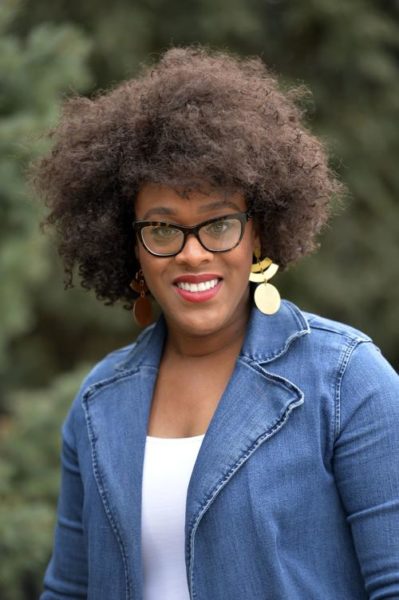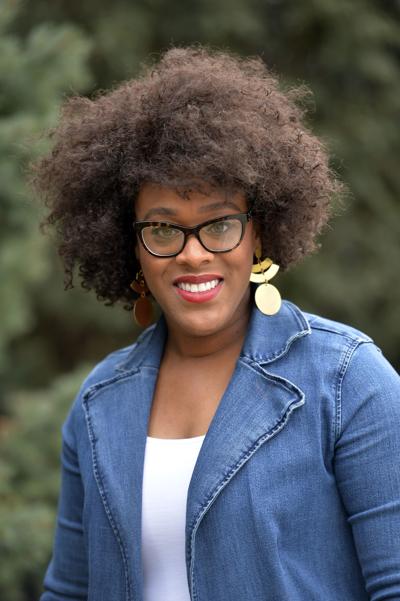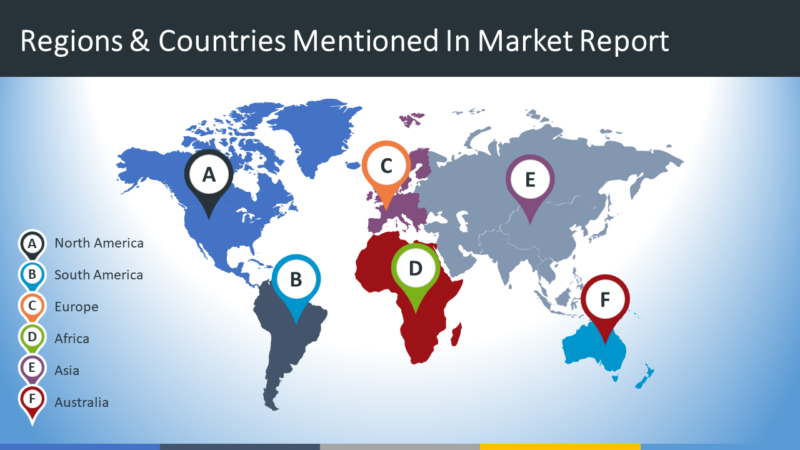Snapshot: Dr. Dominique Pritchett

Snapshot of Dr. Dominique Pritchett.
Brian Passino
“People get into human services or social work definitely not for the money, so I knew that the passion had to be there. And I’d like to think I’ve been through hell and back probably twice, through those childhood experiences, so I know I have something to offer individuals who are going through similar experiences,” said Dr. Dominique Pritchett.
Pritchett, who grew up often homeless in Kenosha, has a doctorate in clinical psychology from Capella University in Minneapolis. She also has a master’s degree in social work from Loyola University and graduated from Carthage College.
One of seven children, Pritchett is the second oldest and oldest girl in her family.
“One of seven, and there was always one bathroom; that’s what I remember,” she said. “So in addition to the homelessness, I’ve had my fair share of trauma, exposure to trauma, addiction in my family. So, through all of those experiences, it has shaped the person I am today, and without them, I don’t think I would be as resilient as I am today.”
Pritchett has a public talk on the topic, titled “Trauma, the Black Child and the Educational System,” scheduled at the Kenosha Civil War Museum on Tuesday, Jan. 21, from 6 to 8 p.m. It is being put on by Courageous Conversations.
“So, it will be myself as a presenter with Dr. Michelle Hancock and then there will be a panel discussing the topic in total,” Pritchett said. “One of my goals is to open up my own mental health private practice later in 2020 in Kenosha.”
Another endeavor is her consulting company called Dominique Pritchett and Co., where she offers personal and professional development services and consulting for individuals focusing on mental health clinicians and entrepreneurship.
Pritchett enjoys reading with a book club and traveling, with trips planned to Botswana, Bali and Dubai.
Here are a few more things that Pritchett recently shared in an interview with the Kenosha News:
Q: Where is work for you?
A: Today it was at the jail. I’m employed through Kenosha Visiting Nurses; however, we provide correctional health care services inside the Kenosha County Jail and Detention Center, (KCDC and the intake downtown), so that is my part-time job. I think the KVNA has been the service provider providing health care services for over 25 years down there.
Q: And how long have you been doing that at that location?
A: Six years.
Q: And you’re currently finishing your post-doctoral training?
A: Yes, so I am now a doctor of psychology, and my post-doc is at Allendale Association in Lake Villa, Ill.
I just started there in August, and I should be there about a year or longer, but a year to finish my post-doc hours to apply for licensure.
Q: What is that like, finishing post-doctoral work?
A: You think school ended, but it didn’t really end because the post-doc is just an extension of your learning experience, but by the state of Wisconsin and Illinois. They require you to get so many clinical hours after your degree, so I think the total hours I need is 3,000 hours, split up between face-to-face and non-face-to-face.
It’s rigorous; it’s very challenging. Every day is something new. We work with a very complex population. So at Allendale, they have the Stepping Stone day treatment school for children with mental health challenges. Our goal is to provide them therapeutic treatment services so that they can hopefully re-integrate back into their regular educational system.
Q: What would you say would be a formative primary memory that led you to do the work that you do?
A: Growing up homeless, so it’s not one memory, it’s a collection of memories. But being homeless off and on until the day that I turned 18 and went to college — I did go to Carthage for my undergrad. But having experienced that and having the number of individuals who helped me and my family get on our feet time after time, that made such an imprint in my life that I knew that’s what I wanted to do for the rest of my life.
Q: You mentioned resilience. That is one of the things that you wanted to develop for children and their ability to weather situations?
A: My dissertation for my doctorate education, I focused on resiliency-based interventions, used strategically to empower children who have been traumatized and parentified. Parentification, or a parentified child, is a child who had their childhood stolen and placed in a parental role much earlier than needed. So, as a result of having their childhood stolen, they missed out on that development, that trust-building, that relationship building. And what my research showed, later in life, as it correlates with the adverse childhood experiences study, as a variable to adverse childhood experiences, individuals later in life have a higher likelihood of suicide, mental illness, addiction.
So the programs that I’m looking to develop is to focus on that variable — what do we do for the child that did not have a childhood? I went through Kenosha Unified most of my education. People knew things about my family. People knew things about my mom, that she struggled with addictions and incarcerations, but people always assumed that I had it all together. I was that sassy girl who was a two sport athlete, maintained her grades and raised five siblings at the age of fourteen. So no one thought to ask, “What’s happening?” I always wore my resilience on my sleeve, but there were other people who saw this depressed and angry girl. But I’d like to think that resilience was misinterpreted.
But what I needed to give the world was this defense, so people perceived it as anger but it was me being as resilient as possible. When I do consulting work with school districts, or I get clients referred to me from school districts, I often challenge the system to take a look at themselves and how are they filtering that child’s experiences. Because when a child has had their childhood stolen, we adults tend to keep them in that role. And we see that in the juvenile justice system, we see that in the educational system. Once a child has been identified as being too grown or thinking they know it all, we start to treat them like that. But really, they’re children who are screaming for help. But we done exactly what their families systems have done-we take their childhood because they look like they have it all together.
Q: So in order to give children back their childhood that they may have missed, what would be the most important things that you think they need to be provided with, or shown or given?
A: Well, in my dissertation I developed a community-based program that I do have great intentions of implementing and taking it as far as international. But when people are developing programs, they’re developing programs on what they think would be helpful, but based on my research, we have to tap into what kids are most excited about: that’s creativity, about being heard. So really developing programs that are preventative.
In my dissertation, my program has three levels of prevention: the primary level of prevention, when we start to see possible parentification or see a child struggling with trauma or behavioral issues. Secondary is OK, this child is identified, we have to really wrap our hands around them, do a wrap-around approach to prevent any further exacerbation of trauma, mental illness, addiction. … We have to be intentional when we develop programs. A lot of times, funders typically drive how we offer programs, who we can offer it to, but we can’t possibly develop any program unless it’s resiliency-driven and client-driven. Sure, we’re the host of the program, but if it’s not going to meet the communities or be applicable to the communities that I’m looking to implement it in, what good was the program.
…It takes me understanding who I’m serving and what they need to develop those programs and my research led me to that. As a mental health clinician, we have these assessments, your psycho-social history, family history, education, work, all of that, but what I realized is that parentified children they’re in a whole other category and a lot of these kids often go either under-diagnosed, misdiagnosed or over-diagnosed because of a variable people don’t consider as trauma and that’s having your childhood stolen and expected to function as an adult at age five.
I recall such a dominant memory is that my mom went to prison. She sold to an undercover cop and she went to jail. At that point in time, I had to put everything I wanted aside — my dreams, my hobbies, my goals — and raise five children that were under me. So there were times that I had to portray to be her. I would get calls from their principals to take care of them. Raising five kids as a teenager, it was hard. It was really hard. For a long time I struggled with (the) guilt of even going to school, going to college, because when you have unresolved issues that you take it into your next phase of life, a lot of times in African-American communities there is a sense of guilt, of like, “Dang, I left my community.” But me, I left my family behind.
So that’s something I had to work through throughout the four years I was at Carthage. What good am I, to be able to endure what I am studying, social work, if I am not well? There was a point in time that I had to tell my siblings, ‘You have to live your life now, I’ve done all I could.’ … For a long time, I enabled my mother to think it was OK to let me raise her kids.
I’m a woman of faith, and I always thank God I don’t look like the hell I’ve been through. Seriously, when I think of some of the experiences I have found myself in, engaging in behaviors just longing for relationships and connections, searching for my childhood because it was stolen, I’m like, “Oh God, I turned out OK.”















Recent Comments